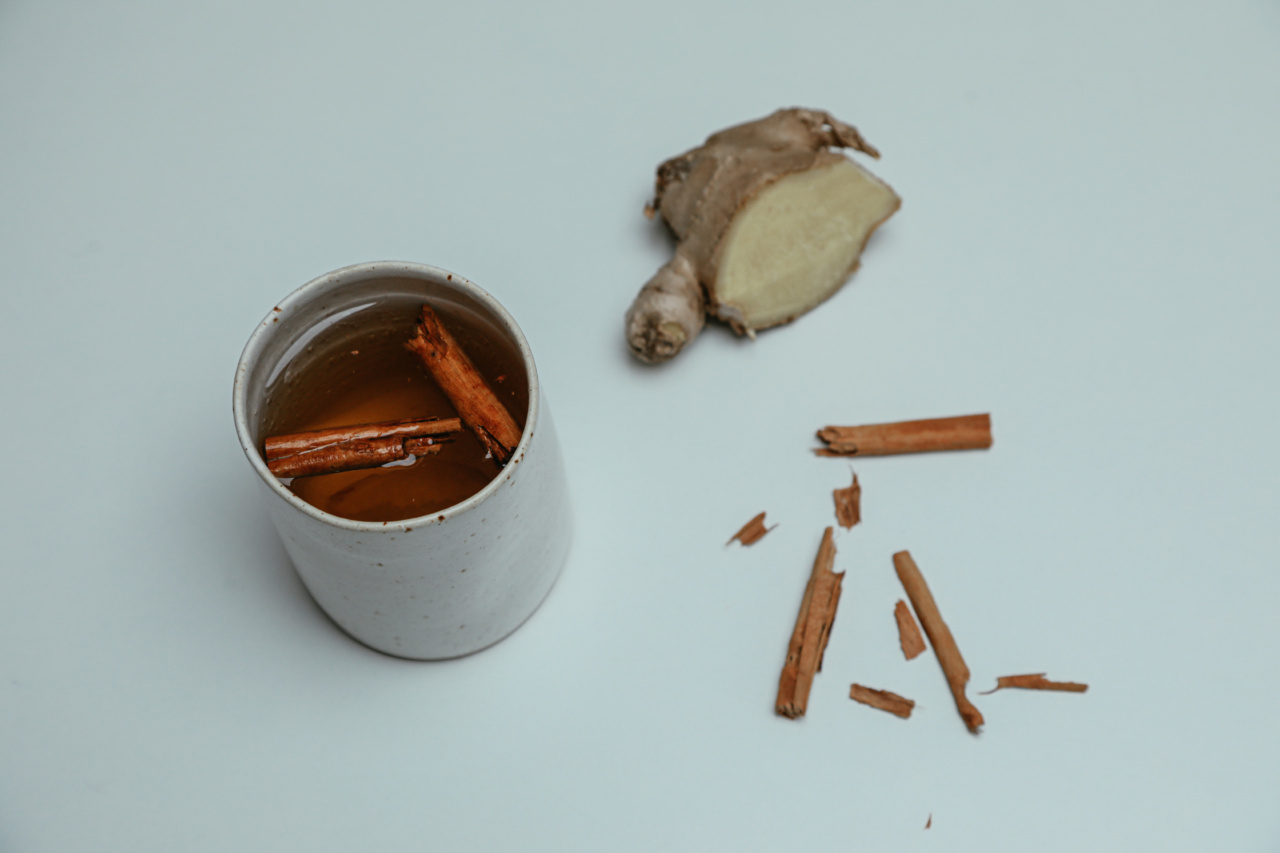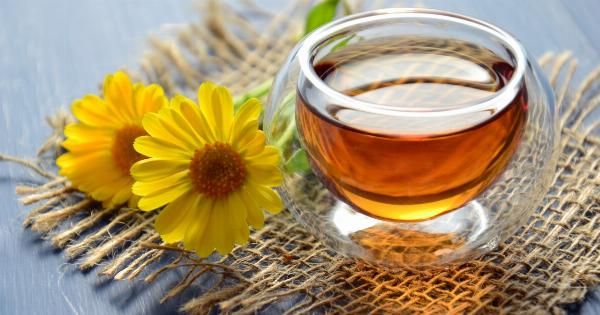Ginger tea is a popular and refreshing beverage that has been consumed for centuries due to its numerous health benefits. It is not only delicious and easy to make, but it also offers a wide range of benefits for your overall well-being.
In this article, we will discuss how to make ginger tea and explore its various health benefits.
What You’ll Need
Before we delve into the process of preparing ginger tea, let’s gather the ingredients and tools needed:.
- 2 cups of water
- 1 to 2 inches of fresh ginger root
- 1 teaspoon of honey (optional)
- Lemon or lime slices (optional)
- Teapot or saucepan
- Grater or knife
- Strainer
- Mug or teacup
Step-by-Step Guide to Making Ginger Tea
H2: Step 1: Selecting and Preparing Fresh Ginger Root
Start by choosing a firm and plump ginger root from your local grocery store or market. Fresh ginger root has a strong fragrance and a slightly wrinkled skin. Avoid selecting ginger that feels soft or has mold on it.
Once you have your ginger root, use a grater or knife to peel off the skin gently. Cut off 1 to 2 inches of ginger root and set it aside for brewing.
H2: Step 2: Boiling the Water
Pour 2 cups of water into your teapot or saucepan and place it on the stove over medium heat. Allow the water to come to a rolling boil. Boiling the water helps to extract the flavors and active compounds from the ginger root.
H2: Step 3: Adding the Ginger Root
Once the water has reached a boil, add the sliced or grated ginger root to the teapot or saucepan. Reduce the heat to low and let it simmer for about 10 to 15 minutes.
Simmering the ginger allows the water to infuse with its flavor and healthful properties.
H2: Step 4: Straining the Tea
After simmering, remove the teapot or saucepan from the heat and strain the ginger tea to separate the liquid from the ginger solids. You can use a small strainer or simply pour the tea through a fine-mesh sieve into a mug or teacup.
Press the ginger solids gently with the back of a spoon to extract any remaining flavor.
H2: Step 5: Adding Optional Ingredients
At this point, you can add a teaspoon of honey to sweeten your ginger tea, if desired. Honey not only enhances the taste but also provides soothing properties.
You may also add a slice of lemon or lime for an extra zing of flavor, along with its own health benefits.
H2: Step 6: Enjoying Your Ginger Tea
Once you have strained the tea and added any optional ingredients, give it a gentle stir. Your ginger tea is now ready to be savored. Take a moment to inhale the invigorating aroma before taking the first sip.
Sip slowly and enjoy the warm, soothing sensation as it glides down your throat.
The Health Benefits of Ginger Tea
H2: 1. Relieves Digestive Discomfort
Ginger tea is renowned for its ability to ease various digestive issues like indigestion, nausea, and bloating. It works by stimulating the digestive system, increasing the production of digestive enzymes, and helping to reduce inflammation in the gut.
H2: 2. Boosts the Immune System
The potent antioxidants present in ginger help strengthen your immune system, making it more resilient against infections and diseases. Regular consumption of ginger tea can help ward off common colds, flu, and even reduce the risk of chronic diseases.
H2: 3. Reduces Inflammation
Ginger contains powerful anti-inflammatory compounds called gingerols. These compounds help combat inflammation in the body, providing relief for conditions such as arthritis, osteoarthritis, and general muscle soreness.
Regular consumption of ginger tea may help alleviate chronic inflammation.
H2: 4. Relieves Menstrual Discomfort
Ginger tea has been used for centuries as a natural remedy for menstrual cramps and discomfort. Its analgesic and anti-inflammatory properties help relax the muscles, reduce pain, and alleviate other symptoms associated with menstruation.
H2: 5. Aids in Weight Management
Drinking ginger tea can support weight management efforts by boosting metabolism, reducing appetite, and increasing fat oxidation.
Additionally, its diuretic properties can help facilitate the elimination of toxins from the body and reduce water retention.
H2: 6. Enhances Cognitive Function
Ginger contains antioxidants that have been linked to improved brain function and cognitive abilities. Regular consumption of ginger tea may help enhance memory, concentration, and overall cognitive function.
H2: 7. Supports Cardiovascular Health
Ginger tea has been found to have positive effects on cardiovascular health by reducing cholesterol levels, blood pressure, and preventing the formation of blood clots.
These benefits contribute to a healthier heart and a reduced risk of heart diseases.
H2: 8. Relieves Respiratory Issues
The warming properties of ginger tea make it an effective remedy for various respiratory conditions like cough, cold, and congestion. It helps to loosen mucus, soothe the throat, and alleviate symptoms, making it an ideal drink during colder seasons.
H2: 9. Improves Blood Circulation
Ginger contains compounds that promote better blood circulation, which is crucial for overall health.
Improved blood flow ensures that all parts of the body receive an adequate supply of oxygen and nutrients, leading to improved organ function and general vitality.
H2: 10. Relieves Stress and Anxiety
Ginger tea has calming properties that can help reduce stress, anxiety, and promote relaxation. It acts as a natural mood enhancer and can contribute to improved mental well-being when consumed regularly.
Conclusion
Ginger tea is a versatile and beneficial beverage that can be enjoyed at any time of day. Whether you want to soothe an upset stomach, boost your immune system, or simply indulge in a comforting cup of tea, ginger tea is an excellent choice.
By following the easy steps provided in this guide, you can prepare your own refreshing ginger tea and experience the multiple health benefits it has to offer.






























